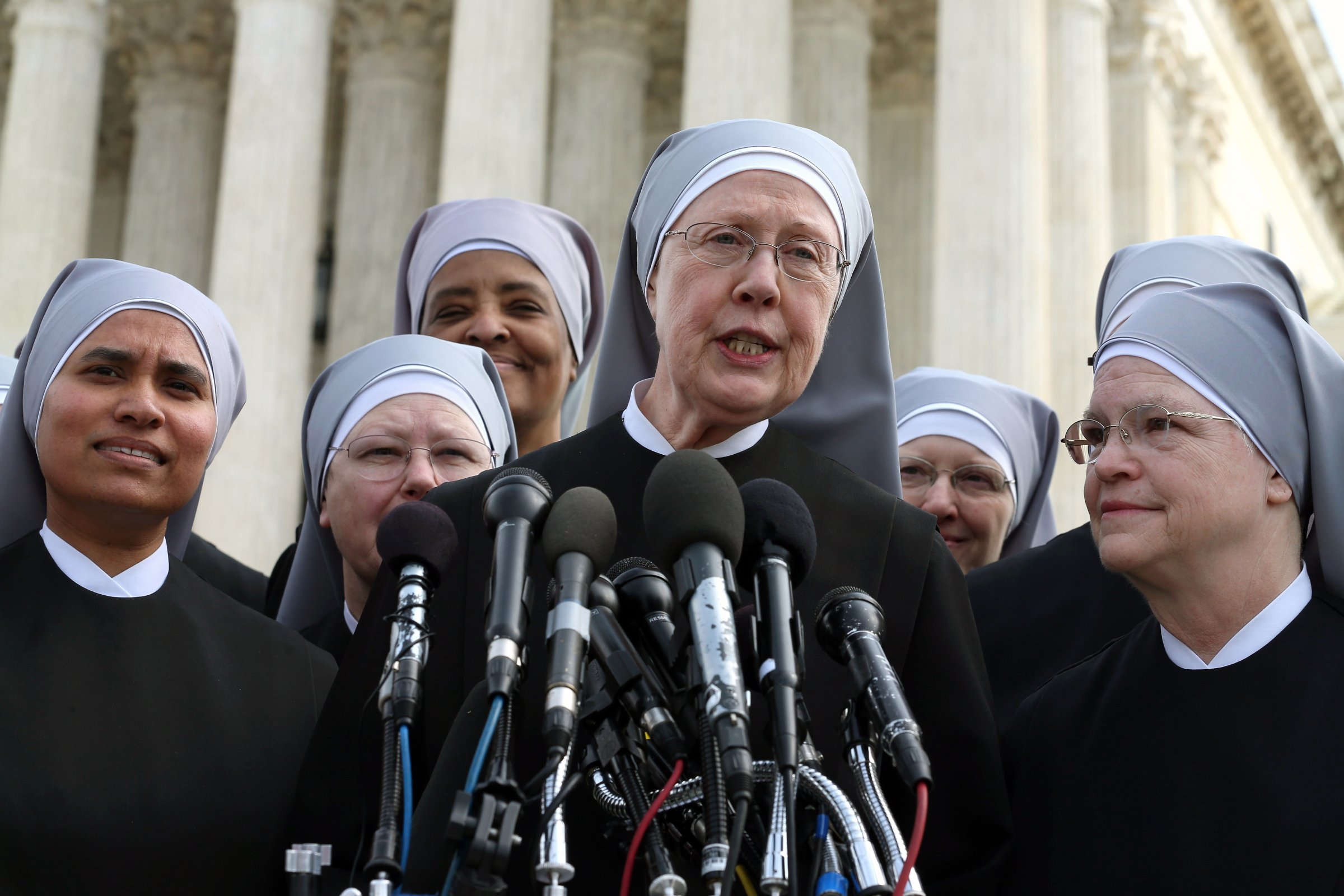
The Supreme Court heard oral arguments Wednesday in a case that bears an eerie resemblance to the legal plight my mosque faced in 2010. The Little Sisters of the Poor, an order of Catholic nuns that cares for the poor and dying elderly, is fighting a regulation that would require them to engage in what they believe is a sin. The federal government is questioning the sincerity of belief of these nuns, and if given its way, would enact the legal equivalent of a construction ban on the work they do.
My Muslim brethren and I know a lot about this kind of mindset. When protestors came to my mosque, long before a leading candidate for president seriously proposed banning peaceful Muslims, I learned first-hand what it’s like to be a religious minority in America. Construction on our mosque in Murfreesboro, Tenn., began in 2010, and was met almost immediately by protests, bigotry, violence, vandalism, arson and a bomb threat. Local residents who did not want the construction to proceed eventually sued us, arguing that Islam is a political ideology, not a religion, and therefore is not protected by the First Amendment’s guarantee of free exercise of religion. The movement to thwart our building a house of worship was underpinned by an aggressive questioning of the sincerity of our beliefs and our ability to live out those beliefs in a way that served, rather than threatened, the common good.
The experience was at times frightening but also enlightening. I gained a deeper understanding of the unique genius of the American experiment and its system of protections for those that find themselves in the minority. The founders understood that the propensity to disagree about just about everything under the sun is “sewn into the very nature of man.” What we might call “diversity” today, they called “factions.” “A zeal for different opinions concerning religion,” wrote James Madison in Federalist 10, was a source of disagreement about which mankind is particularly “disposed to vex and oppress each other” rather “than to co-operate for their common good.”
There are plenty of people today who would argue that wiping society of religion is the solution, and yet the American founders dispelled this notion as a doomed enterprise centuries ago. Because mankind’s quest for spiritual truth is a part of what makes us human, it cannot be suppressed or shoved into a box. Rather, society must be structured such that a majority cannot trample on a minority through mob rule. Ultimately, our attorneys at the Becket Fund for Religious Liberty were able to successfully litigate our case in federal court, and in 2012, the final brick was laid in what is now a thriving community of believers who live peacefully alongside the very people that initially sought to stop us.
Like the lawsuit against my mosque, the Sisters’ plight is unfair and unnecessary. The government’s stated goal is to provide contraception services to women and to make these services free and widely available. The Sisters argue that they cannot provide these services through their religious health insurance plan because providing them goes against their Catholic faith.
The government has disregarded the Sisters’ religious objections arguing in lower courts that the Sisters are “fighting invisible dragons.” However, it has exempted—for commercial or convenience reasons—one in three Americans from having to be subject to this mandate. Among the exempted are large corporations like Chevron and Pepsi, the City of New York, family plans for the largest employer in the nation—our own military—as well as the government plan for disabled Americans, Medicare. All in all, more than 100 million Americans are exempt for the same mandate the government is fighting so hard to impose on this small order of nuns. There is no need for this conflict. There is an easy solution that protects the Sisters’ religious liberty and meets the government’s goal: to provide these services through the existing healthcare exchanges.
It’s easy to support religious freedom for the majority. But the test of America’s commitment to religious diversity and freedom comes when we show that we’ll defend minorities and those with whom we do not fully agree. I stand with the Little Sisters. If they lose their case, they will not lose alone. We will all lose alongside them.
More Must-Reads from TIME
- L.A. Fires Show Reality of 1.5°C of Warming
- Behind the Scenes of The White Lotus Season Three
- How Trump 2.0 Is Already Sowing Confusion
- Elizabeth Warren’s Plan for How Musk Can Cut $2 Trillion
- Why, Exactly, Is Alcohol So Bad for You?
- How Emilia Pérez Became a Divisive Oscar Frontrunner
- The Motivational Trick That Makes You Exercise Harder
- Zelensky’s Former Spokesperson: Ukraine Needs a Cease-Fire Now
Contact us at letters@time.com